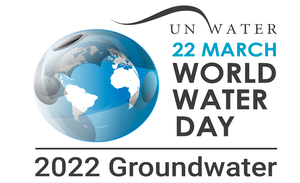World Water Day 2022
World Water Day is celebrated on 22 March, an anniversary established by the United Nations in 1992 as part of the directives of Agenda 21, the result of the Rio conference. The theme chosen for 2022 is "Groundwater: Making the Invisible Visible".
Groundwater is invisible, but its impact is visible everywhere. Out of sight, under our feet, the water table is a hidden treasure that enriches our life.
Almost all liquid fresh water in the world is underground. As climate change escalates, groundwater will become increasingly critical. We must work together to sustainably manage this precious resource.
- https://development.isprambiente.gov.it/en/archive/news-and-other-events/ispra-news/2022/03/world-water-day-2022
- World Water Day 2022
- 2022-03-22T00:00:00+00:00
- 2022-03-22T23:59:59+00:00
- World Water Day is celebrated on 22 March, an anniversary established by the United Nations in 1992 as part of the directives of Agenda 21, the result of the Rio conference. The theme chosen for 2022 is "Groundwater: Making the Invisible Visible". Groundwater is invisible, but its impact is visible everywhere. Out of sight, under our feet, the water table is a hidden treasure that enriches our life. Almost all liquid fresh water in the world is underground. As climate change escalates, groundwater will become increasingly critical. We must work together to sustainably manage this precious resource.
- When Mar 22, 2022 (GMT+0 / UTC0)
-
Add event to calendar
iCal
Groundwater are valuable resources and the main source of drinking water for Italy, but they are subjected to various pressures. There are 1,052 national underground water bodies and they are very different from each other for geochemical and hydrological characteristics, therefore for the response to the pressures to which they are subjected.
About 58% of underground water bodies are in a "good" chemical state, mainly in mountain areas and little exposed to contamination, while 25% are "scarce" due to the excess of inorganic substances such as nitrates, sulphates, fluorides, chlorides , boron, along with metals, chlorinated and aromatic substances and pesticides.
61% of the underground water bodies are still in a good quantitative state, while 14.4% are "scarce" and the remaining 24.6% are not yet classified and are mainly located in the Center (Lazio, Marche) and in the South. (Basilicata and Calabria)
Source: ISPRA "Opened Ecological Transition" (Chapter Groundwater)

